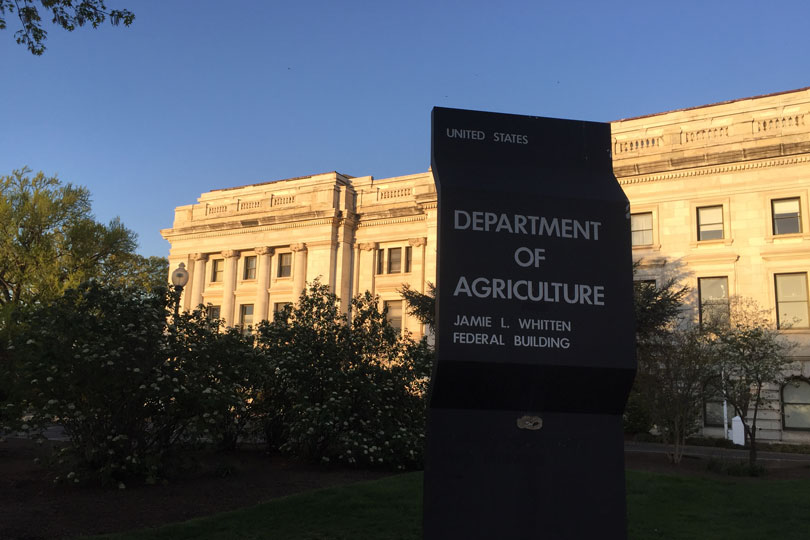By Julie Tomascik
Editor
U.S. Secretary of Agriculture Sonny Perdue recently authorized the movement of a modified, non-infectious version of the foot and mouth disease (FMD) virus from the Plum Island Animal Disease Center to the U.S. mainland to continue vaccine development and research.
“The modified FMD virus is unable to cause disease, and there is no risk of transmitting the disease. But federal law still requires the secretary of agriculture to approve movement of the virus,” Tracy Tomascik, Texas Farm Bureau associate director of Commodity and Regulatory Activities, said. “The modified live virus can’t replicate and cause disease should it ever come into contact with livestock. That’s a huge safeguard. This kind of virus can’t make animals sick, but it still retains properties that make is research ready and useful for scientists under highly secured, biologically controlled laboratories.”
The Plum Island Animal Disease Center, which is located near the northeast coast of Long Island in New York state, has housed the only modified FMD virus for decades.
Technological advancements have made it possible to genetically modify the virus so that it is non-infectious, the U.S. Department of Agriculture (USDA) said.
According to a USDA Animal and Plant Health Inspection Service (APHIS) release, identifying a vaccine that uses the modified virus will enable the agency to more quickly source and acquire an FMD vaccine in the event of an outbreak of the disease.
“Secretary Perdue is taking a proactive step to protect the U.S. livestock industry,” Tomascik said. “American research scientists will now be able to better research and more quickly develop a vaccine that would be ready to deploy if necessary. This decreases the dependence on overseas sources to develop that vaccine.”
Following the announcement, vaccine companies are now able to apply for USDA permits to continue their work with this specific modified, non-infectious FMD virus in the U.S.
“All necessary safety protocols will be followed with these studies and research,” Tomascik said. “USDA included biocontainment and use restrictions in the permits, and the agency holds the authority to revoke all transfers should a laboratory begin to fall out of compliance.”
The U.S. livestock industry is susceptible to foreign animal diseases, and FMD is among the most disastrous, Tomascik noted.
It is a highly contagious, viral foreign animal disease that affects domestic livestock, including cattle, swine, sheep, goats and domestic cervids—hoofed mammals such as deer and elk.
FMD could cause reduced milk and meat productivity, illness and death.
“There are many different variants of the FMD virus across the globe. So if there is an outbreak, it must be sampled to produce the right vaccine and start a distribution response to protect potentially exposed animals,” Tomascik said. “Working to develop our own vaccines would be a big benefit to U.S. agriculture and give us independence and security to initiate a response with a vaccine if ever needed.”

